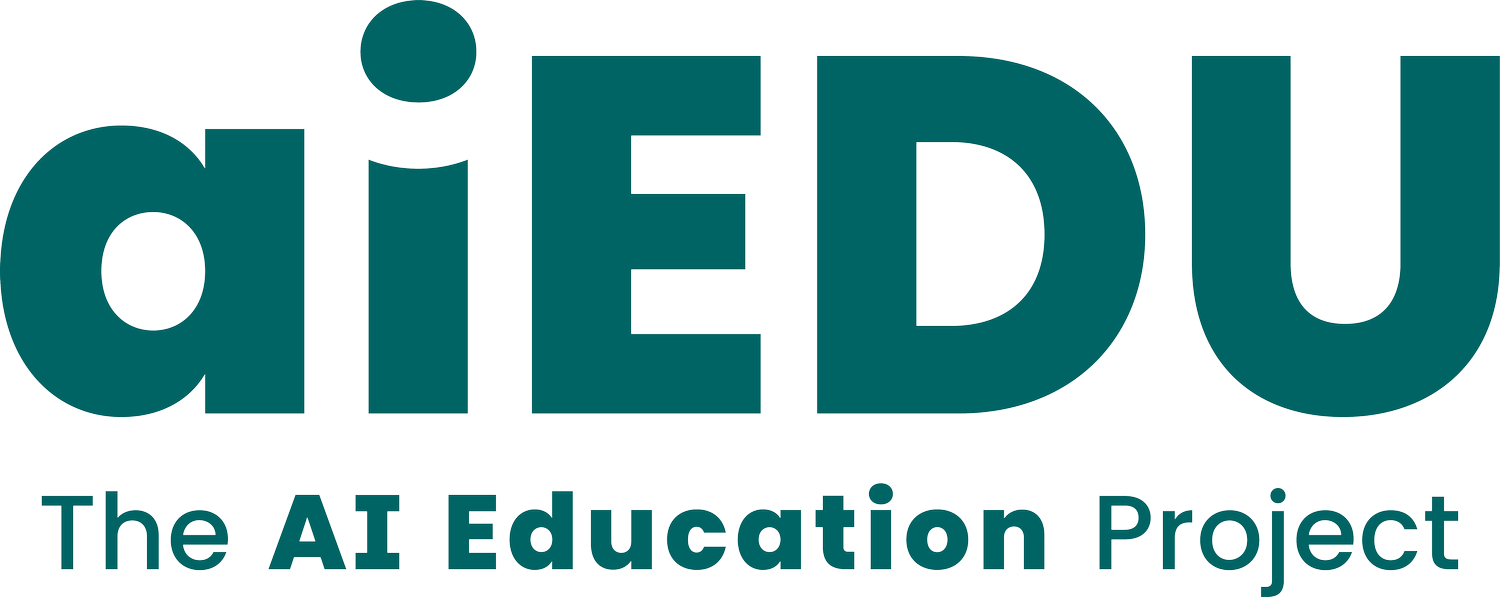Advocate
aiEDU is Leading A Call to Action for AI Education
We’re partnering with dozens of leading companies, universities, and nonprofit organizations to support school districts and educational service agencies who are making a commitment to advance AI education.
Individual K12 schools, districts, educational service agencies, museums, afterschool programs, community colleges, four-year colleges, and other organizations which reach students are all invited to make a commitment to bring learning experiences about AI to students.
AI is going to change the world, and our students need to be ready.
We need to face it, AI is now a mainstream technology. For years we’ve heard from our government, industry, and academic communities, who have been warning about the growing and unmet need for foundational and technical AI education.
Recently-released generative AI tools like OpenAI’s ChatGPT and Google’s Bard have captured the world’s attention because we are all beginning to see clearly that the long foretold AI revolution is now here.
Students who aren’t empowered to harness AI as creators, consumers, workers, and citizens will be left behind.
That’s why The AI Education Project is launching a movement to unify the STEM education ecosystem to help schools respond to the scale and velocity of AI.
Make a commitment
Answer the Call to Action
-
Education providers are challenged to deliver inspiring AI learning experiences and curricula that fit into one of two categories (or both): foundational AI education or technical AI education.
Foundational AI Education: Basic AI literacy curricula and projects, generally inserted into core curriculum and certain electives (English, Social Studies, Math, Science, Art/Design, Business/Entrepreneurship, CTE) — accessible to any Title 1 school. Can range from short modular activities and lessons up to multi-week curricula and projects where students use and modify AI tools; including opportunities in the Humanities in addition to STEM and CS.
Technical AI Education: Full-length courses in artificial intelligence and/or computer science which teach students how to create and manipulate models and algorithms.
Commitments are constituted by a diverse array of activities, but generally address one or more of the following: creating space for teacher Learning & PD opportunities about AI or piloting introductory AI projects and activities with students.
-
Community Colleges can commit to growing the number of students who enroll in AI-related courses and credentials; or to collaborate with high schools via dual enrollment programs.
-
Four Year Colleges can commit to requiring an AI ethics course for engineering, CS, or Humanities majors; or to increase the percentage of students who complete an AI course (for example, by integrating an “introduction to AI” module into Freshman Seminar.)
-
States can add AI education to state Computer Science and Technology standards; or fund teacher professional development programs.
-
Non Profit organizations that reach students can integrate AI activities into their summer camps, after school programs, and other programs.
Libraries and Museums can commit to hosting a bi-monthly AI activity and movie night, or create an interactive AI exhibit.
Cities and Counties can commit funding to support AI Education Scholarships and other programs that advance AI education.
Any organization can suggest their own idea for a commitment that ultimately advances equitable AI education.
Partners in our Call to Action
aiEDU is proud to partner with a cohort of nonprofit, institutional, and other strategic partners that work to advance AI education and our Call to Action.
Thank you to our amazing ecosystem of partners!

